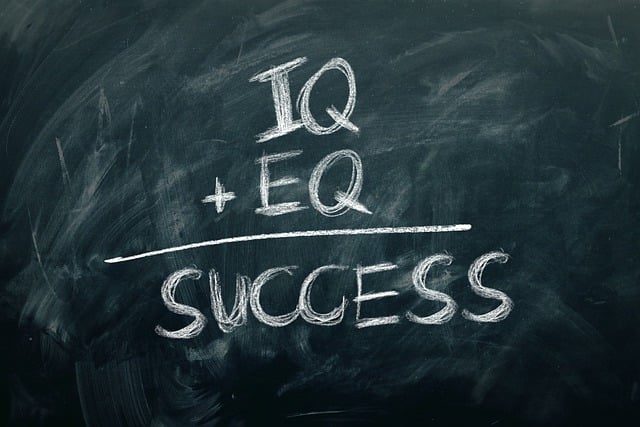During the hustle and bustle of the holiday season, we spend time with family at Thanksgiving, and exchange gifts during Christmas. But, it is also a time of reflection for many.
Some are thinking of making a change to escape a dead-end job or to finally take a leap of faith and start working toward your dream job.
But, are you keeping up with the fast-paced job market? Do you have the skills needed to make your career change a successful one?
Now more than ever it is important to update or learn skills that are marketable and in demand by employers in today’s job market.
Making progress toward achieving your career goals does not require a few years to accomplish.
n fact, many work related skills can be learned from the comfort of your own home through various online learning resources in a few days, or weeks.
Ready to discover what you need for career advancement in 2024?
Buckle up, as we explore the essential skills you need to ensure your 2024 career transition is your most seamless shift into the career you’ve always envisioned.
Key Takeaways
- Grow your potential and stay ahead of the curve with essential skills like critical thinking, emotional intelligence, adaptability & more.
- Unleash your creativity and initiative to take risks & propel your career forward!
- Take action now – identify areas for improvement, seek professional development opportunities & engage in self-directed learning.
Essential Skills for Today’s Workforce

The key to career success lies in possessing a diverse range of skills that make you indispensable in your field.
Some essential soft skills that give you an edge over the competition and ensure your professional growth and adaptability in an ever-changing job market include:
- Critical thinking
- Initiative and Creativity
- Emotional intelligence
- Adaptability
- Technology Design and Programming
- Data Collection and Analysis
- Ideation
- Active Listening
- Conflict Resolution
- Resilience
- Networking and Social Influence
By developing and honing these skills, you can enhance your career prospects and thrive in your chosen field through skills development.
Critical Thinking
Imagine a world where you can effortlessly understand complex ideas, analyze information, make informed decisions, and solve complex problems.
Welcome to the world of critical thinking! This invaluable skill enables you to dissect information, evaluate options, and make well-informed judgments in both your personal and professional life.
Mastering the art of critical thinking involves honing a range of essential elements, such as:
- Truth-seeking
- Judiciousness
- Inquisitiveness
- Analytical thinking
Cultivating these cognitive skills turns you into a more proficient thinker and a greatly desired professional, making you in demand in the current workforce.
Initiative and Creativity

In a world where innovation and risk-taking are highly valued, having the ability to initiate and be creative can propel your career to new heights.
Initiative and creativity are the driving forces behind advancements in various industries and are crucial for staying ahead in a competitive job market.
The application of creative problem-solving abilities and showcasing a cooperative spirit can position you as a priceless asset in any professional environment.
Emotional Intelligence

Navigating the complex world of emotions is a vital skill for everyone, especially in the professional realm.
Emotional intelligence is crucial for understanding and managing emotions, building strong relationships, and navigating social situations with grace and ease.
Developing socio emotional skills can greatly enhance one’s ability to succeed in both personal and professional life.
Emotional intelligence can enhance your decision-making process at work, enrich your interpersonal relationships, and foster a pleasant work atmosphere for both you and your team.
Adaptability
Change is the only constant in today’s dynamic work environment.
To stay relevant and competitive, you need to be adaptable and able to adjust to new roles and technologies with ease.
Embracing adaptability not only ensures your survival in the job market but also sets you apart from your peers.
Skills like analytical thinking, active learning, and problem-solving can help you stay competitive and flexible in the constantly changing professional landscape.
Technology design and Programming

As digital transformation continues to impact various industries, technology design and programming skills have become more important than ever before.
Gaining these skills can open up fresh opportunities and accelerate your career growth in this digital era.
From creating computer programs to designing your own website, technology design and programming skills are essential for staying ahead of the competition and excelling in your career.
Data Collection and Analysis
In a data-driven world, the ability to collect and analyze data is indispensable for making informed decisions and optimizing business processes.
Proficiency in data collection and analysis enables you to reveal patterns, trends, and preferences that can fuel growth and enhance customer experience.
Using various tools such as surveys, transactional tracking, and software for data analysis, you can transform raw data into actionable insights that propel your organization to new heights.
Ideation Skills
The ability to generate new ideas, concepts, and solutions is at the heart of innovation and growth. Ideation skills involve:
- Brainstorming
- Sketching
- Prototyping
- Other techniques to come up with creative solutions that drive success.
Refining your ideation abilities allows you to overcome challenges, make better decisions, and develop new strategies that contribute to your organization’s growth and prosperity.
Active Listening
Have you ever felt misunderstood or unheard in a conversation?
Effective communication is the key to any successful relationship, and active listening plays a crucial role in ensuring that we understand and connect with others.
Practicing active listening techniques, like focusing on the speaker, observing body language, and asking clarifying questions, enhances your communication skills.
It also fosters stronger relationships in both your personal and professional life.
Conflict Resolution
Disagreements are an inevitable part of life, but how we handle them can make or break our relationships and work environment.
Conflict resolution skills are vital for managing disagreements, finding common ground, and maintaining a positive atmosphere.
Mastering conflict resolution techniques including setting clear expectations, active listening, and adopting neutral language.
These can foster a more productive workspace and healthier relationships with colleagues and clients.
Resilience

Life is full of challenges, and our ability to bounce back from setbacks is crucial for our well-being and success.
Resilience is the key to overcoming obstacles, adapting to change, and maintaining a positive attitude in the face of adversity.
Cultivating resilience empowers you to manage stress, handle workplace conflicts, and address challenges more effectively, thereby increasing job satisfaction and overall success.
So, cultivate resilience and embrace the ups and downs of your career journey with confidence and grace!
Networking and Social Influence
In today’s interconnected world, building a strong professional network is essential for career advancement.
Networking and social influence skills allow you to forge meaningful connections, gain visibility in your field, and open doors to new opportunities.
Engaging with a network of professionals, participating in industry events, and utilizing social media platforms expands your reach and influence in your chosen field.
Strategies for Closing the Skills Gap
Having explored the top skills required for career success in 2024, it’s time to take action and bridge those skills gaps.
Identifying areas for improvement, seeking professional development opportunities, and engaging in self-directed learning ensures your skillset stays relevant and competitive in the current job market.
So, let’s delve into these strategies and start your journey toward continuous learning and professional growth!
Identifying Areas for Improvement

The first step in closing the skills gap is recognizing where you need improvement and what new skills you need to acquire.
Assess your current abilities, then research industry trends, and seek feedback from colleagues and mentors to identify areas for growth and customize your learning journey.
While you are on the journey remember that nobody’s perfect, and everyone has room for improvement.
Embrace the opportunity to grow and develop your skills, and you’ll be well on your way to achieving your professional goals.
Pursuing Professional Development Opportunities
One of the most effective ways to acquire new skills and knowledge is by pursuing professional development opportunities.
These can include attending workshops, conferences, or enrolling in online courses tailored to your specific learning needs through online learning platforms.
To select the perfect professional development opportunity, consider the following factors:
- Your objectives
- Course content
- Provider reputation
- Delivery format
- Pricing
Investing in your professional growth not only boosts your career prospects but also future-proofs your skills in a continually evolving job market.
Engaging in Self-Directed Learning
Self-directed learning, also known as independent learning, empowers you to take control of your learning journey, set personal goals, and learn at your own pace.
This approach allows you to tailor your learning experience to your unique needs and preferences, making it an incredibly effective method for acquiring new skills and knowledge.
This method also allows you to sharpen skills also needed in the workplace such as: motivation, time management, goal-setting, and self-evaluation.
Career Change and Essential Skills
So, there you have it. Now, it’s your turn to take the helm.
Don’t leave your future to chance. Step forward and seize it!
Start identifying your areas for improvement, explore professional development opportunities, and engage in self-directed learning today.
Remember, the journey of a thousand miles begins with a single step. So, take that step now and set the course for a successful career in 2024 and beyond!.
Frequently Asked Questions
What are the 4 most important skills for an employee?
Having a positive attitude, great communication skills, the ability to work well in teams, self-management, and a willingness to learn.
Thinking skills, problem-solving and decision-making skills, and resilience are also highly sought after.
What is the #1 skill most employers look for?
Leadership skills are the number one skill most employers look for, as they demonstrate a person’s ability to grow beyond their current role. Critical thinking skills are also highly sought after by employers.
What is skills development?
Skills Development is the process of acquiring, improving, and enhancing a wide range of skills and competencies. It involves learning in formal, non-formal, informal and on-the-job settings to build knowledge, expertise, and capabilities in specific areas for both personal and professional growth.
What professional development opportunities can help me acquire new skills?
You can acquire new skills by attending workshops, conferences, and enrolling in online courses tailored to your specific learning needs.